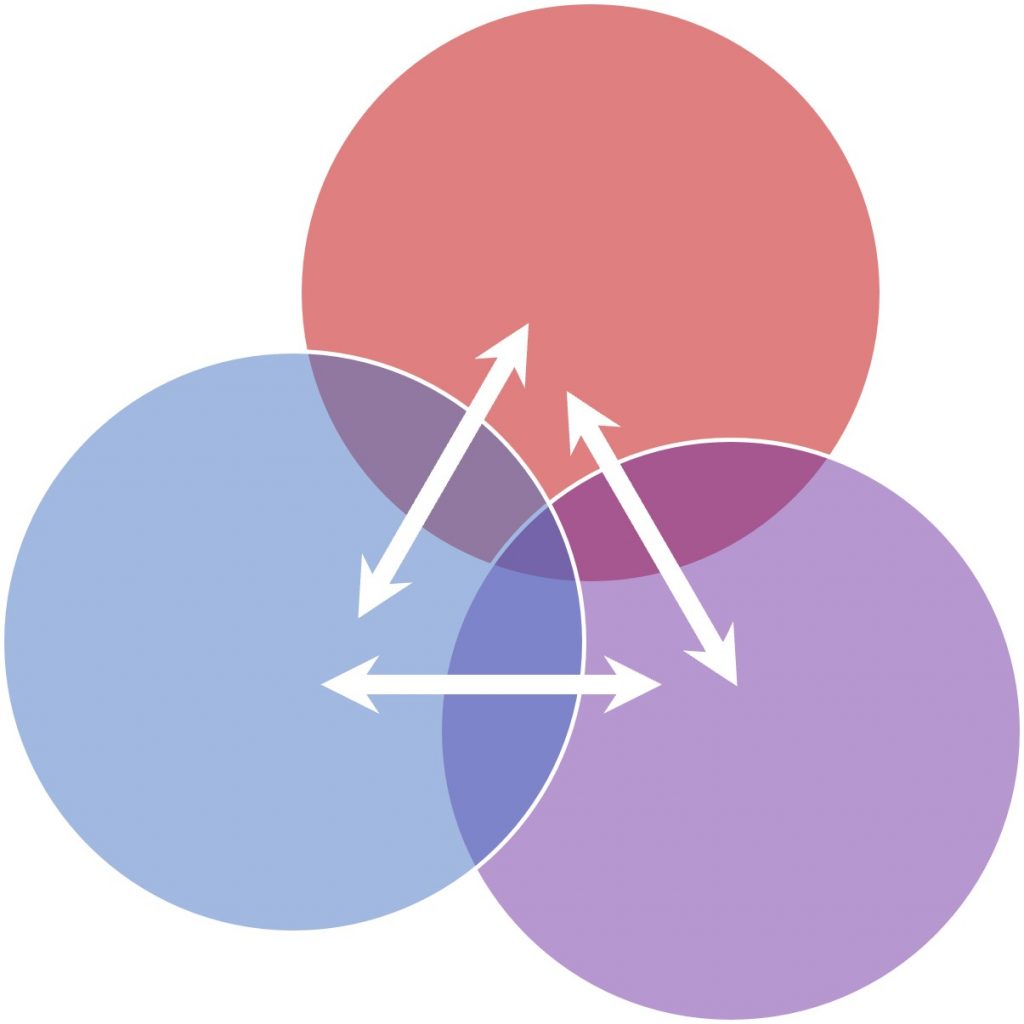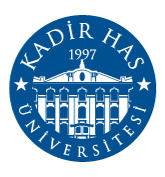Upcoming Courses
Regular Courses
Spring 2024
Week 1: Overview of Classical Information Theory
- What is Information? (the notions of uncertainty, unpredictability, disorder, and randomness, contextuality and probabilities, joint and marginal probabilities, correlations)
- Measures of Information (Shannon entropy, joint entropy, conditional entropy, mutual information, Kullback–Leibler divergence)
- Classical Communication (data compression, noisy channels, error-correcting codes)
Week 2: From Bits to Qubits
- Beyond Classical Probabilities (double-slit experiment, Stern-Gerlach experiment, delayed-choice experiment, delayed-choice quantum eraser experiment)
- Quantum States (Dirac notation, the notion of superposition, measurement problem)
- Quantum Information Measures (von Neumann entropy, entanglement entropy, entanglement of formation, l1 norm of coherence, relative entropy of coherence, quantum mutual information)
Week 3: Building Quantum Circuits
- Single-Qubit Gates (Pauli X, Y, and Z gates, Hadamard gate, phase gate, pi/8 gate)
- Quantum Circuit Representation (bit, qubit, n qubits, measurement, entanglement)
- Multi-Qubit Gates (controlled-NOT, controlled-Z, controlled-phase, swap, Toffoli, Fredkin gates)
Week 4: Advanced Quantum Protocols
- Quantum Teleportation (the principles behind transferring quantum states between distant qubits)
- Entanglement Swapping (methods of transferring entanglement between distant particles)
- Superdense Coding (efficient quantum communication protocols)
Week 5: Essential Quantum Algorithms I
- Deutsch’s Algorithm (the first quantum algorithm showcasing quantum speedup)
- Quantum Fourier Transform (the quantum counterpart to classical Fourier transform)
- Qutrits and Gedik Algorithm (the smallest quantum algorithm)
Week 6: Essential Quantum Algorithms II
- Shor’s Algorithm (for integer factorization)
- Grover’s Algorithm (for unstructured search)
- Quantum Phase Estimation Algorithm (for quantum state estimation)
Week 7: MIDTERM
Week 8: Noisy Intermediate-Scale Quantum Era
- Quantum Error Models
- Quantum Error-Correcting Codes
- Fault-Tolerant Quantum Computation
Week 9: Emerging Frontiers in Quantum Computing
- Quantum Time Travel & Closed Time-Like Curves
- Quantum SWITCH: Superposition of Different Operations
Week 10: Quantum Computing & Security
- Quantum Attacks on Classical Cryptosystems
- Quantum Key Distribution
- Post-Quantum Cryptography
Week 11: Quantum Computing & Chemistry
- Mapping Fermions to Qubits
- Variational Quantum Eigensolver Algorithm
- Quantum Simulation of Chemical Reactions
Week 12: Quantum Computing & Optimization
- Quantum Annealing & Adiabatic Quantum Computation
- Quantum Approximate Optimization Algorithm
- Quantum Optimization of Portfolio Management
Week 13: Quantum Computing & Machine Learning
- Neural-Network Representation of Quantum States
- Tensor Networks
- Quantum Machine Learning Algorithms
Week 14: PAPER PRESENTATIONS
Spring 2024
Week | Subjects |
1 | Chemical bonding as a quantum superposition phenomenon: hybridized atomic orbitals vs molecular orbitals, resonance vs configuration interaction |
2 | Role of quantum superposition in the structure and function of biomolecules: covalent vs hydrogen bonds in water, proteins, enzymes, and DNA |
3 | Contextuality of quantum probabilities provided by quantum superposition: effect of measurements on state vectors vs density matrices |
4 | Quantification of quantum superpositions shared between different systems: quantum entanglement, quantum discord, classical correlations |
5 | Fragility of quantum superpositions in open quantum systems: decoherence vs thermalization by intra- vs inter-molecular interactions |
6 | Open quantum system dynamics described by quantum collision models: memory of the environment in Markovian vs non-Markovian molecular processes |
7 | Open quantum system dynamics described by quantum master equations: information vs energy exchange with molecular baths |
8 | Non-equilibrium quantum thermodynamics of single systems: majorization-based generalization of entropy and free energy |
9 | Quantum effects in enzyme catalysis and DNA replication |
10 | Quantum effects in molecular recognition and olfaction |
11 | Quantum effects in light-sensitive radical pair mechanism and magnetoreception |
12 | Quantum effects in photoisomerization and vision |
13 | Quantum effects in biological energy transport and photosynthesis |
14 | Quantum effects in cognition and decision making processes |
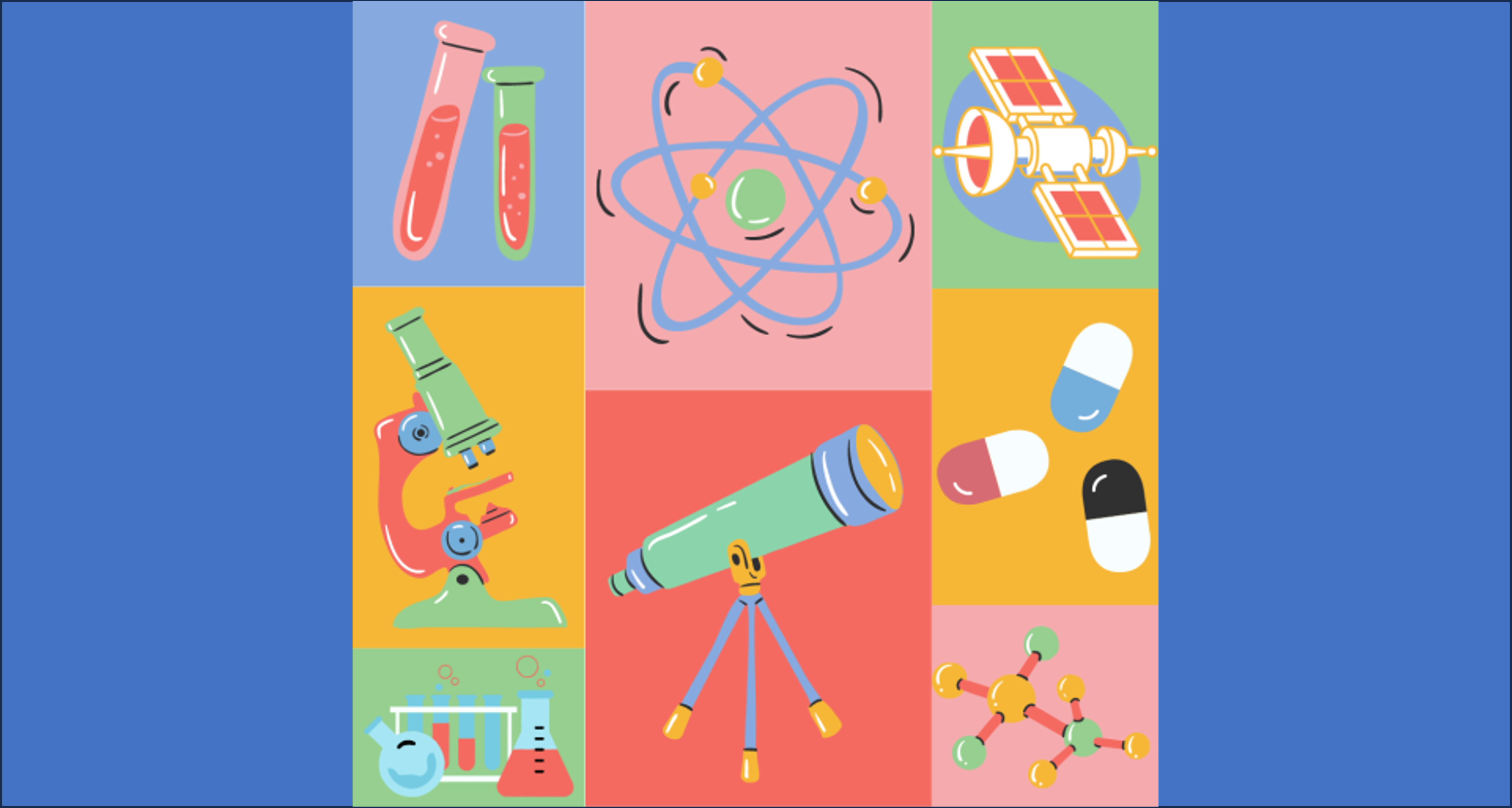
Fall 2023
This course aims to introduce the students with a broad outline on fundamental sciences by focusing on a discussion of groundbreaking discoveries, innovations and inventions in various scientific fields. The course also aims to develop the students’ curiosity for scientific fields and their connections, help them understand the consequences of scientific developments and the role science and technology play in shaping today’s world.
Modules:
– A SHORT JOURNEY FROM THE BIG BANG TO NOW
– EVOLUTIONARY BLUEPRINTS
– MEDICINE AND QUALITY OF LIFE
– EVERYDAY TECHNOLOGIES: QUANTUM AGE
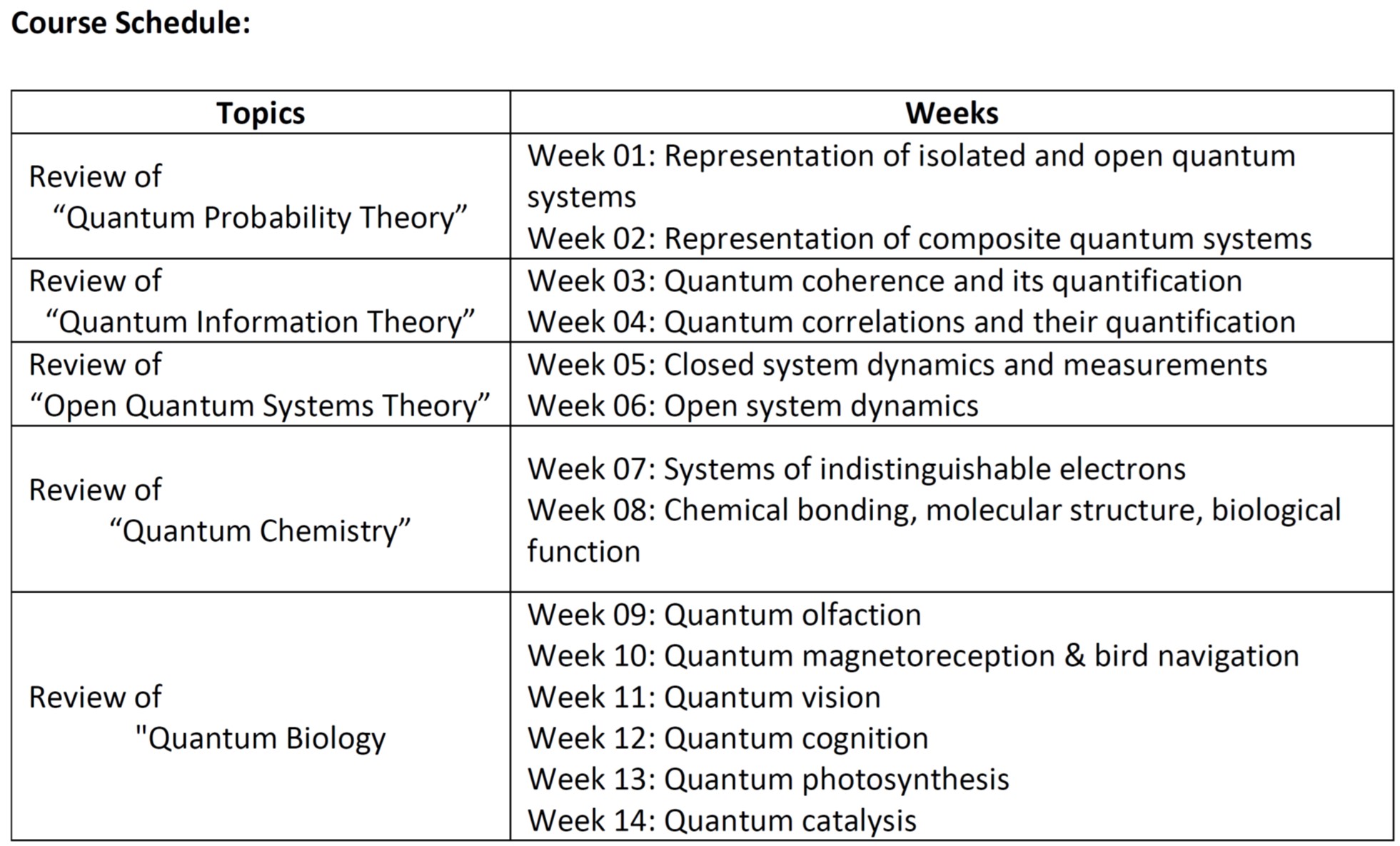
Fall 2021
The main aim of the course is to make an introduction to quantum biology. This is a new research field that investigates what kind of quantum effects appear in biochemical systems, how these effects emerge in the first place, what is needed to protect them, and how they play a role in the functions of biomolecules. The mathematical framework that forms the basis of this research is not covered extensively in undergraduate physics, chemistry, or molecular biology curricula. So, the course starts with a brief overview of the theories of quantum probability, quantum information, and open quantum systems. In the second half of the course, we review some more recently discovered phenomena in the fermionic information theory, an extension of quantum information theory for indistinguishable particles, including the electrons and protons shared in chemical bonds. Next, we investigate the nature of the chemical bond and the structure of biomolecules within the mathematical framework introduced in the first half of the course. Finally, we review the nontrivial quantum effects in model biological processes such as olfaction, magnetoreception, and enzyme catalysis.

Fall 2021
The main aim of the course is to make an introduction to quantum biology. This is a new research field that investigates what kind of quantum effects appear in biochemical systems, how these effects emerge in the first place, what is needed to protect them, and how they play a role in the functions of biomolecules. The mathematical framework that forms the basis of this research is not covered extensively in undergraduate physics, chemistry, or molecular biology curricula. So, the course starts with a brief overview of the theories of quantum probability, quantum information, and open quantum systems. In the second half of the course, we review some more recently discovered phenomena in the fermionic information theory, an extension of quantum information theory for indistinguishable particles, including the electrons and protons shared in chemical bonds. Next, we investigate the nature of the chemical bond and the structure of biomolecules within the mathematical framework introduced in the first half of the course. Finally, we review the nontrivial quantum effects in model biological processes such as olfaction, magnetoreception, and enzyme catalysis.
Winter/Summer School Courses
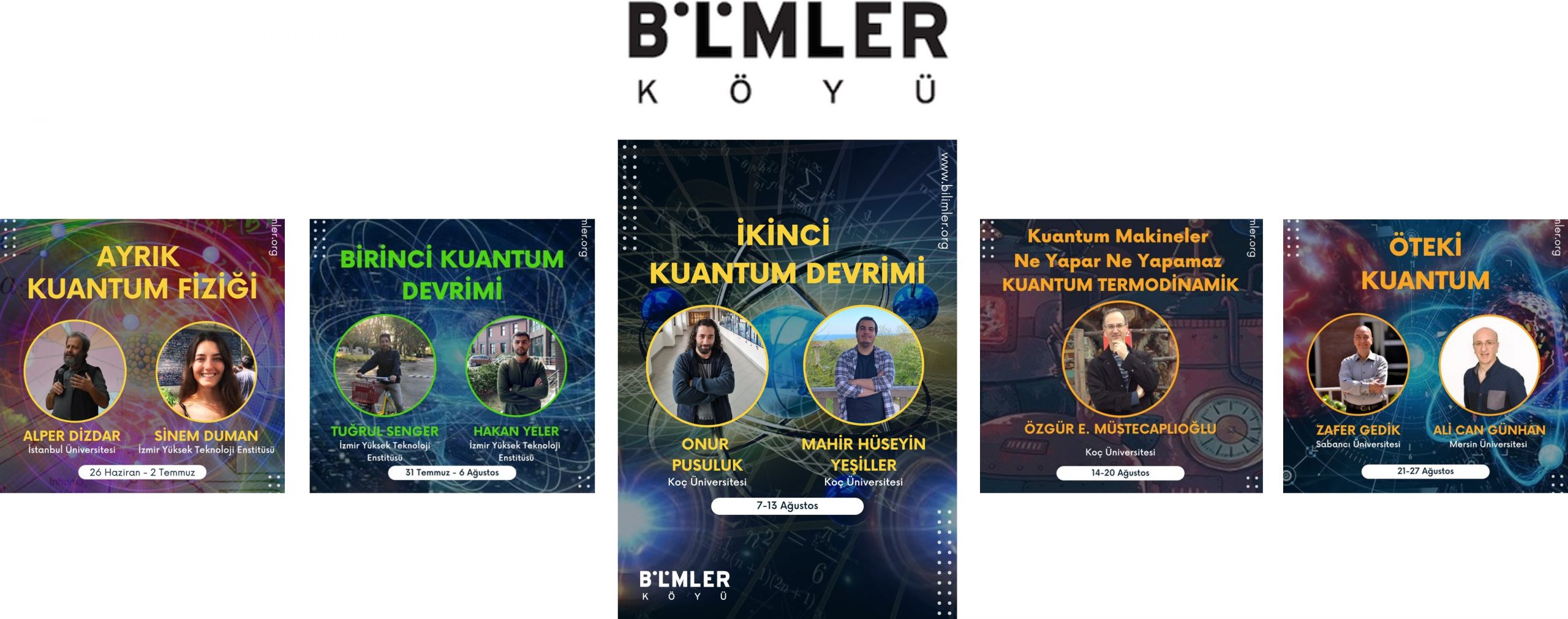
– The Second Quantum Revolution (in Turkish), Aug 7-13, 2023
Details
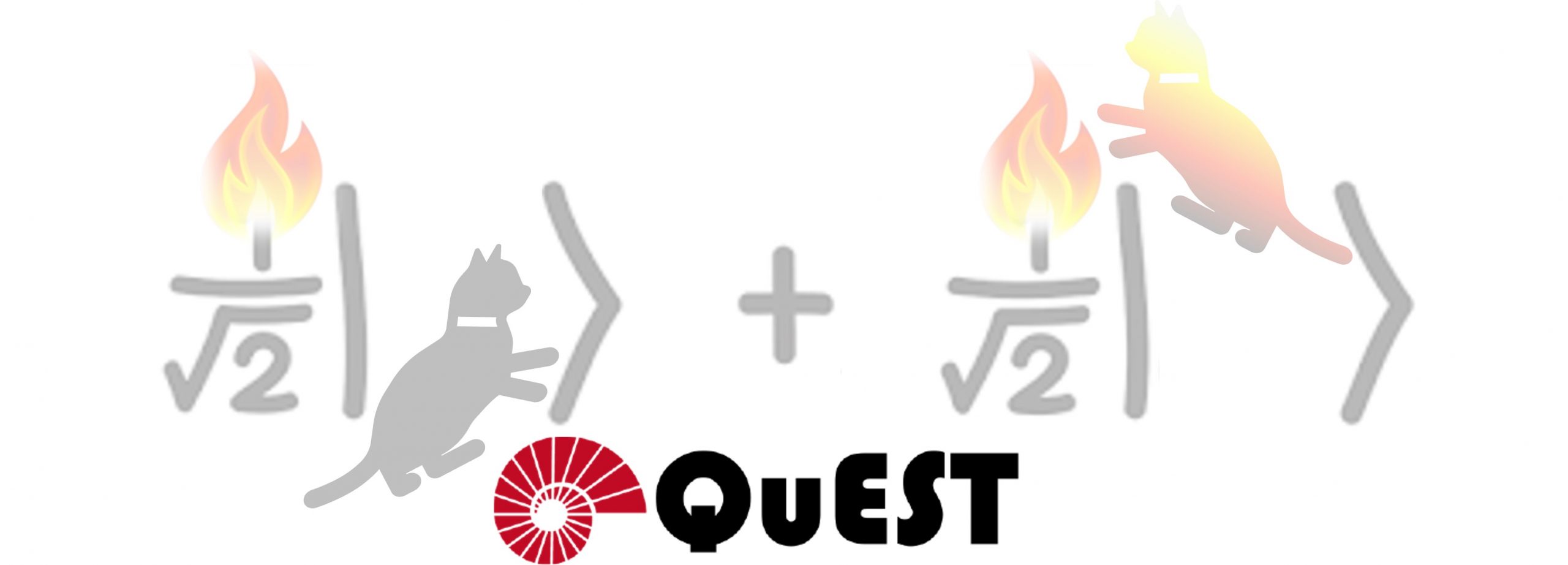
– Quantum Complex, Biological, and Information Systems,
KUSRP22, 7 week online course, Jun 2022 – Aug 2022. Check Details
– Quantum Information and Quantum Biology,
KUSRP21, 7 week online course, Jun 2021 – Aug 2021. Check Details
– Introduction to Quantum Biology,
KUSRP20, 30 hour online course, Aug 2020 — Sep 2020.
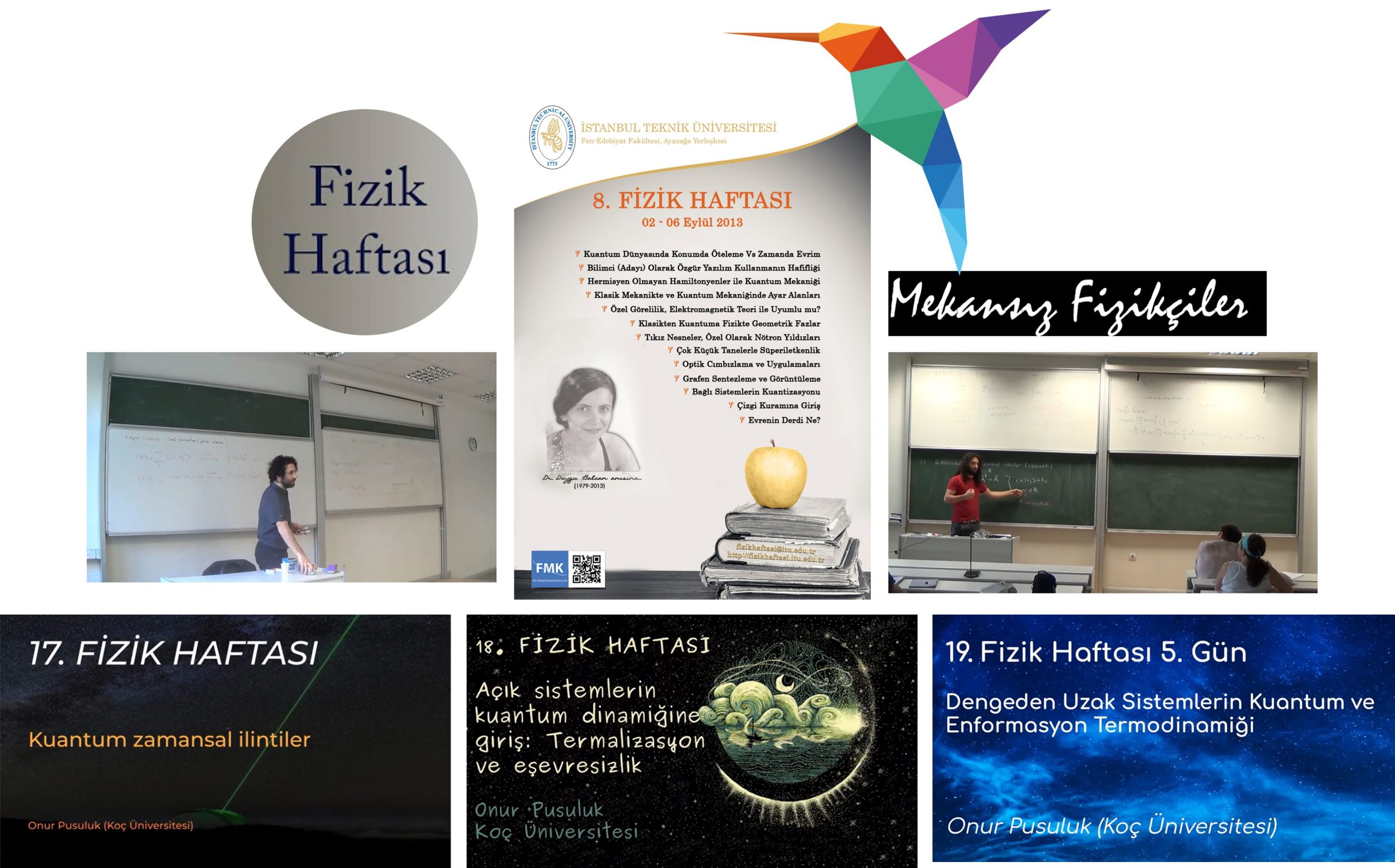
– Quantum-information thermodynamics of out-of-equilibrium systems (in Turkish), Oct 2021. Watch from YouTube
– Introduction to open quantum system dynamics: decoherence and thermalization (in Turkish), Feb 2021. Watch from YouTube
– Quantum temporal correlations (in Turkish), Oct 2020. Watch from YouTube
– Weakly-interacting open quantum systems (in Turkish), Feb 2016. Watch from YouTube
– Closed time-like curves: Quantum mechanics of time travel through teleportation (in Turkish), Sep 2015.
– Introduction to classical and quantum correlations (in Turkish), Jan 2015. Watch from YouTube
– Correlations and macroscopic quantum states (in Turkish), Jan 2015. Watch from YouTube
– Translation and time evolution in quantum mechanics (in Turkish), Sep 2013. Watch from YouTube
– Quantum superposition, entanglement, and decoherence (in Turkish), Jan-Feb 2012. Lecture Notes
– Time symmetric formulation of quantum mechanics (in Turkish), Sep 2011. Lecture Notes
– Introduction to quantum computation and quantum information (in Turkish), Feb 2011. Lecture Notes
– Quantum mechanics: Postulates, modern experiments, and Bell inequalities (in Turkish), Sep 2010. Lecture Notes
– Postulates of quantum mechanics with alternative formulations (in Turkish), Jan 2010. Lecture Notes

